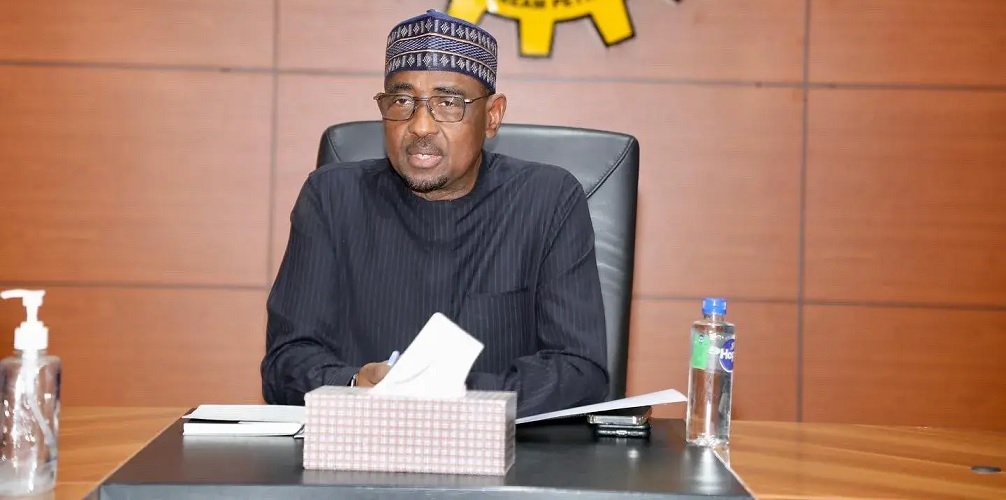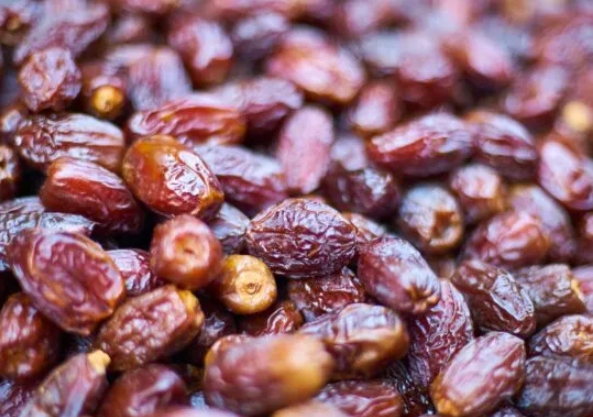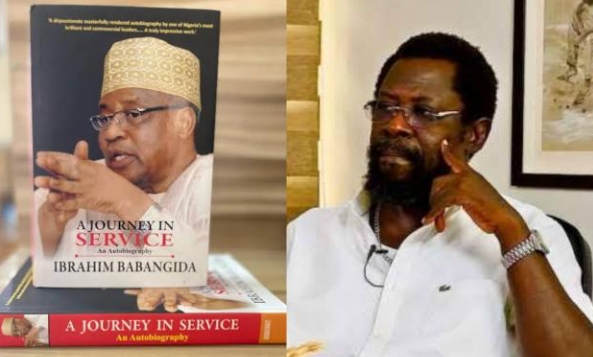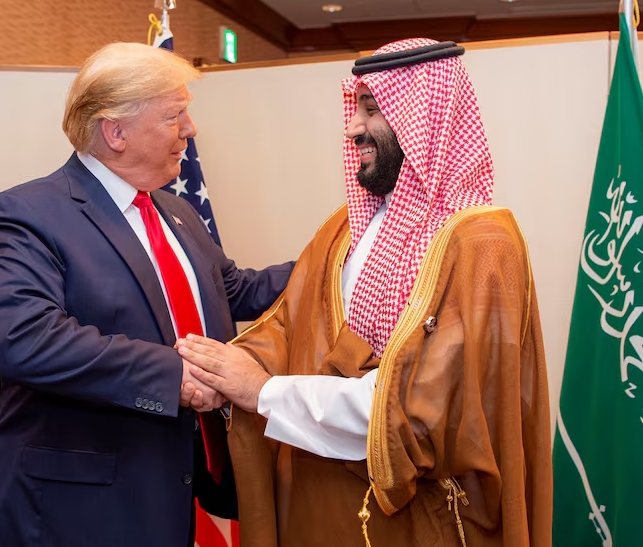News
Anti-Dangote refinery comments: Nigerians demand removal of NMDPRA boss

Nigerians have called out the Chief Executive of the Nigerian Midstream and Downstream Petroleum Authority, Farouk Ahmed, for saying the diesel produced by the $20bn Dangote refinery is inferior to the ones imported into the country.
It appears Ahmed incurred the wrath of Nigerians, who accused him of trying to demarket the refinery owned by Africa’s richest man, Aliko Dangote.
PUNCH Online reported earlier that Ahmed had told the Dangote refinery that the Federal Government would not stop the importation of petroleum products, saying Nigeria cannot depend on one refinery to feed the nation.
The agency also said the diesel from the Dangote refinery contains a high sulphur content of about 1,000 parts per million.
Reacting to allegations that the NMDPRA was giving licences to some traders to import dirty fuel into Nigeria, Ahmed argued that it was the Dangote fuel that had the larger content of sulphur.
He revealed that the refinery, which has been selling diesel and aviation fuel in Nigeria for months, has not been licensed, stating that it is still at the pre-commissioning stage.
“The claim by some media houses that there were steps to scuttle the Dangote refinery is not so. The Dangote refinery is still in the pre-commissioning stage. It has not been licensed yet; we haven’t licensed them yet. They are still in the pre-commissioning. I think they have about 45 per cent completion,” he declared.
The NMDPRA boss warned that Nigeria cannot rely heavily on the Dangote refinery for its fuel supply.
According to him, the refinery had requested the regulator to stop giving import licences to other marketers so as to be the only fuel supplier in Nigeria.
“We cannot rely heavily on one refinery to feed the nation, because Dangote is requesting that we should suspend or stop importation of all petroleum products, especially AGO and direct all marketers to the refinery, that is not good for the nation in terms of energy security. And that is not good for the market, because of monopoly,” he stressed.
Speaking about quality, he said, “So, in terms of quality, currently the AGO quality in terms of sulphur is the lowest as far as the West African requirement of 50 ppm is concerned.
“Dangote refinery and some modular refineries, like Waltersmith refinery and Aradel refinery, are producing between 650 to 1,200ppm. So, in terms of quality, their product is much more inferior to the imported quality,” he alleged.
While the Dangote Group has yet to react officially to the allegations from the chief executive, Nigerians have taken to social media to demand Ahmed’s removal by President Bola Tinubu.
An X user, Ohiozoje Augustine, said, “He should be immediately relieved of his duties to prevent the damaging impression that his actions were endorsed by those at the top.”
@realist_waley opined: “It’s a very deliberate reckless talk that should warrant a query from the government. This is an obvious economic sabotage and that guy needs to be suspended.”
@Talk2me001, replied the NMDPRA boss: “This is your own selfish agenda. Why do we need to import when we already have Dangote producing legally? Truly, Dangote is right then, that the oil cabals are more dangerous than drug cabals.”
@Dankatsina50 said: “This is a strategy to frustrate Dangote refinery. This has been the game of the oil cabals that has made a whole country not have a single functioning refinery for years. They should allow him to be selling the inferior one to us like that, we will buy it.”
@Gviev commented, “I hope the Central Bank of Nigeria Governor and Minister of Finance are listening to this man. We are talking about promoting local production and exports to reduce demand for foreign exchange and strengthen the naira. He and the oil marketers are rather focused on their selfish interest to keep importing and depressing the naira.
“You should be talking about competition for local producers instead of trying to manipulate Nigerians to focus on your propaganda that Dangote wants a monopoly. Well, it’s Nigeria that will suffer it because Dangote Refinery will just focus on exports.”
Johnson Ayodeji asked, “Oga, is it Dangote that made the government-owned refineries moribund for decades? or has Dangote stopped any other person from building a refinery? We know the enemies of our country.”
Sola Solarin claimed, “This statement is self-indicting. If Dangote has not been licensed, why is he being allowed to sell diesel? If Dangote can meet our local needs, why do we need to import? We can restrict import without compromising energy security.”
@Woye stated: “The interview granted by Farouk Ahmed, the Chief Executive Officer of the NMDPRA was a reckless statement. The refinery is in the stages of completion and commissioning. They are producing AGO and it is normal for their sulphur level to be high for now.
“That their products are inferior is an unfortunate statement that indicates that he has a personal grudge against Aliko Dangote. I do hope that the Honourable Minister of State for Petroleum (Oil), Heineken Lokpobiri will issue him a query.
“Don’t introduce politics of refinery and IOCS into this laudable project of Dangote.”
Olatunji Olalekan maintained: “Honestly, Ahmed’s statement was completely sabotage to the whole investment on Dangote refinery and Foreign Direct Investment. He should be queried and investigation should commence immediately to get to the root cause of his statement in order to prevent future occurrence.”
Sammy said: “Farouk should be shown the way out ASAP.”
@olusegunIfade also said: “Farouk Ahmed’s statement that Dangote refinery product is inferior compared to imported ones and shouldn’t be relied on is clearly a sabotage! He must be part of the cabal in the oil industry working to see the end of Dangote refinery. He should be sacked! #SackFaroukNow.”
Dr. Abdullahi Mohammed: “Farouk Ahmed is the face of the cabal’s frustrating and sabotaging campaign against local refining of our crude oil. In China and other developed countries, Farouk has no reason to remain in that office as CEO. This same reason is why all the refineries in Nigeria can’t work.”
PUNCH Online reports that government-owned refineries have been moribund for years as efforts to bring them to life are yet to succeed.
Over the years, Nigeria has been importing refined petroleum products. This, Dangote vowed to stop when he began the production of PMS.
However, the Dangote Group alleged that the IOC was sabotaging its efforts by refusing to sell crude to the refinery while the NMDPRA kept granting licences for the importation of “dirty fuel into Nigeria.”
News
Saudi Arabia donates 100 tonnes of dates to Nigeria as fasting approaches

By Kayode Sanni-Arewa
The Embassy of the Kingdom of Saudi Arabia in Abuja has held an official ceremony to distribute 100 tonnes (100,000kg) of dates to Nigeria as part of its annual humanitarian relief efforts.
The initiative, facilitated by the King Salman Humanitarian Aid and Relief Centre (KSrelief), aims to support vulnerable families across the country and strengthen the deep-rooted ties between the two nations.
During the ceremony, the Ambassador of the Custodian of the Two Holy Mosques to Nigeria, Faisal bin Ibrahim, conveyed the Kingdom’s dedication to humanitarian causes.
He expressed his profound gratitude to King Salman bin Abdulaziz and Crown Prince Mohammed bin Salman for their unwavering support in providing aid to Muslims and underserved communities worldwide.
He emphasised that Saudi Arabia remains steadfast in its commitment to fostering Islamic solidarity and providing relief to those in need.
Mr Al-Ghamdi explained that this year’s distribution includes 50 tonnes of dates for Abuja and another 50 tonnes for Kano, continuing Saudi Arabia’s tradition of assisting Nigeria through humanitarian donations.
He noted that the initiative represents the Kingdom’s broader mission to uplift Muslim communities, alleviate suffering, and promote unity, particularly during significant religious periods such as Ramadan.
The embassy, in collaboration with local authorities and humanitarian organisations, will ensure the proper distribution of the dates so that they reach the most vulnerable families in various regions of Nigeria
Saudi Arabia has been a longstanding partner in providing humanitarian aid to nations across the globe, including Nigeria. The Kingdom’s continued efforts in supporting food security and welfare initiatives exemplify its role as a global leader in charitable and humanitarian endeavours.
Through Vision 2030, Saudi Arabia seeks to expand its contributions to international humanitarian causes, reinforcing its dedication to fostering peace, stability, and prosperity worldwide. The ongoing provision of aid to Nigeria is a testament to these commitments and highlights the decades-long partnership between the two brotherly nations.
News
Babangida’s Book is filled with distorted facts, collection of lies, says Dele Farotimi

By Kayode Sanni-Arewa
Dele Farotimi, a human rights lawyer, has launched a heavy attack on former dictator Gen. Ibrahim Babangida (retd.), describing his reign as “ruinous”.
Farotimi, who lived through Babangida’s rule, recounted his experiences as a participant in the fight against the former leader’s “evil actions and inactions
Farotimi’s comments come after Babangida’s recent admission that Chief M.K.O. Abiola won the 1993 presidential election, which Babangida annulled.
The human rights lawyer expressed his disappointment, but not surprise, at the “mixed bag of lies, half-truths, urban legends, and obfuscations” in Babangida’s recent statements.
Farotimi’s criticism is not isolated, as many Nigerians have questioned Babangida’s legacy and the lack of consequences for his actions. The annulment of the 1993 election led to widespread protests and a prolonged struggle for democracy in Nigeria.
In a statement, Farotimi concluded, “No hagiographic allocutus can redeem the Evil Genius of Minna”.
The statement was shared on X while he was reacting to a comment made by Adnan Abdullahi Adam, which stated that “it’s better to read every side of exposition before forming your own judgement”.
With the cover picture of the IBB’s memoir “A Journey In Service” @realadnantweet wrote:
“I think IBB’s memoir: “A Journey in Service” exposes a fresh perspective on everything.
“It’s better to read every side of exposition before forming your own judgement.
“Everyone should try reading the book as jury to the plea of the accused.”
Responding Farotimi wrote: “I lived through his ruinous reign. I wasn’t a passive victim of his evil actions and inactions, I was a participant in the fight to be freed of him.
“I am painfully aware of the extent of his evil capabilities, and I have not been disappointed by the mixed bag of lies, half truths, urban legends, and obfuscations contained in the excerpts already in the public domain. No hagiographic allocutus can redeem the Evil Genius of Minna.”
On Thursday, February 20, 2025, former Nigerian military ruler General Ibrahim Badamasi Babangida (IBB) released his long-anticipated autobiography, “A Journey in Service.”
The memoir has ignited a firestorm of controversy, with critics accusing Babangida of distorting historical events and maligning deceased individuals who cannot defend themselves.
This development has reopened debates about his tenure and its lasting impact on Nigeria’s political and economic landscape.
Babangida’s tenure from 1985 to 1993 was marked by the implementation of the Structural Adjustment Programme (SAP), among others. In “A Journey in Service,” he provides an insider’s perspective on the adoption of SAP, aiming to offer context for the controversial policy that aimed to liberalize Nigeria’s economy.
While intended to address economic challenges, SAP led to widespread protests and debates due to its harsh austerity measures and the social hardships it imposed.
Critics, however, contend that Babangida’s memoir serves as a self-exoneration tool, selectively presenting events to absolve himself of blame.
Human rights lawyer and former Chairman of the Nigerian Human Rights Commission, Prof. Chidi Odinkalu, described the book as a “pack of lies,” accusing Babangida of making allegations against deceased individuals who cannot contest his claims.
Odinkalu further criticized Babangida for portraying himself as a victim of circumstances orchestrated by those who are no longer alive to defend themselves.
The memoir has also rekindled discussions about Babangida’s annulment of the June 12, 1993, presidential election, widely regarded as one of Nigeria’s freest and fairest elections. In the book, Babangida attempts to justify the annulment, a move that plunged the nation into political turmoil and prolonged military rule. Many Nigerians view this action as a significant setback to the country’s democratic progress.
News
Saudi Arabia plans to invest $600bn in new US trade over 4 years

By Kayode Sanni-Arewa
Saudi Arabian Crown Prince Mohammed bin Salman told President Donald Trump that the kingdom wants to put $600 billion into expanded investment and trade with the United States over the next four years, the Saudi State news agency said early on Thursday.
In a phone call between the two leaders, the crown prince said the Trump administration’s expected reforms could create “unprecedented economic prosperity”, the state news agency reported.
The report said Saudi Arabia wants its investments to capitalize on these conditions. It did not detail the source of the $600 billion, whether it would be public or private spending nor how the money would be deployed.
The investment “could increase further if additional opportunities arise”, the agency quoted Bin Salman as telling Trump.
Trump fostered close ties with Gulf states including Saudi Arabia during his first term. The country invested $2 billion in a firm formed by Jared Kushner, Trump’s son-in-law and former aide, after Trump left office.
Trump said following his inauguration on Monday that he would consider making Saudi Arabia his first destination for a foreign visit if Riyadh agreed to buy $500 billion worth of American products, similar to what he did in his first term.
“I did it with Saudi Arabia last time because they agreed to buy $450 billion worth of our product. I said I’ll do it but you have to buy American product, and they agreed to do that,” Trump said, referring to his 2017 visit to the Gulf kingdom.
The Reuters Daily Briefing newsletter provides all the news you need to start your day. Sign up here.
Reporting by Hatem Maher; Editing by Leslie Adler and Cynthia Osterman
-

 News23 hours ago
News23 hours agoJust in : Senator Gumau is dead
-

 Metro16 hours ago
Metro16 hours agoInsecurity! Gunmen invade church, slash pastor’s 2 fingers
-

 News22 hours ago
News22 hours agoI have never insulted President Tinubu in my entire life”-Gov Adeleke
-

 News24 hours ago
News24 hours ago10th NASS Committed to Constitutional Reforms – Kalu
-

 News23 hours ago
News23 hours agoRep Salam Congratulates Governor Adeleke On Successful Conduct Of LG Elections
-

 Metro16 hours ago
Metro16 hours agoFire engulfs MTN office in Oyo
-

 News22 hours ago
News22 hours agoPolice seal OSSIEC office, officials nabbed, says chairman
-

 Foreign15 hours ago
Foreign15 hours agoPentagon set to sack 5400 staff as attack hits Trump’s downsizing plan







